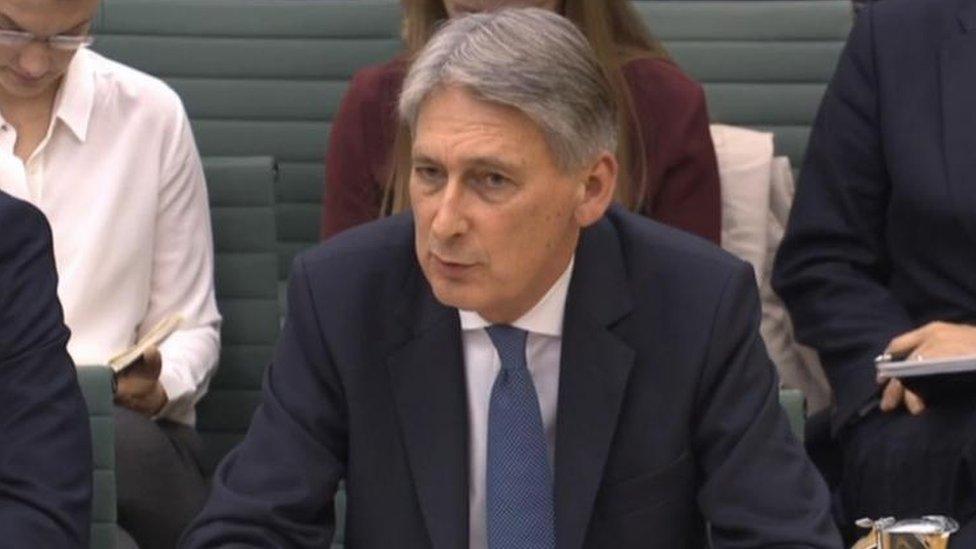Hammond says Treasury’s EU economic shock analysis 'partially invalid'
- Published
- comments

The chancellor has said controversial Treasury analysis of the economic shock the UK might face if it left the European Union is now "partially invalid".
It is a significant break with his predecessor, George Osborne, and with what became known by critics of the Remain campaign as "Project Fear".
Philip Hammond said some of the assumptions behind the document - which suggested a significant drop in economic growth - had been superseded by events.
Those close to the chancellor made it clear the models were not wrong for the time, but the circumstances had now changed.
It is also clear that Treasury officials still believe that there will be an economic slowdown as Britain negotiates its exit from the EU, a position backed by the Bank of England.
"The analysis that the Treasury published in April was based on a specific set of assumptions and it looked at three potential outcomes - they are stylised scenarios," Mr Hammond said.
"It did so - as I think modelling inevitably does - against a set of assumptions.
"Some of those assumptions have already proved to be invalid."
Mr Hammond said that events were not following the path the models supposed.
Firstly, the government did not immediately trigger Article 50 to start the two-year process for leaving the EU.
Secondly, the models proposed for Britain's future relationship with the EU were too "fixed" and that Britain was looking for a "bespoke deal".
'Detrimental effect'
The Treasury model looked at different arrangements, from the UK becoming a member of the European Economic Area - the Norway model - to having a relationship with the EU based on World Trade Organization tariffs.
It said that each of them would have a detrimental effect on the British economy.
Mr Hammond also questioned the validity of the Treasury's "immediate economic impact" document published last May.
The chancellor said the Treasury modelling did not allow for what are called "dynamic responses", such as the Bank of England's decision to cut interest rates following the referendum.
"The Bank of England has already taken actions which mitigate the impact," Mr Hammond said.
He has already argued that the UK economy is in robust shape, although Britain will face challenges ahead.
In part, Mr Hammond is stating the obvious - models are only true for a certain time and are only, at best, a judgement on what may happen to complicated economic and political relationships.
But, given that one of those Treasury documents contained the controversial estimate that, by 2030, households would be £4,300 worse off compared to the situation if Britain stayed in the EU, Mr Hammond is signalling he doesn't have much time for that analysis any more.
Whatever his predecessor said at the time.